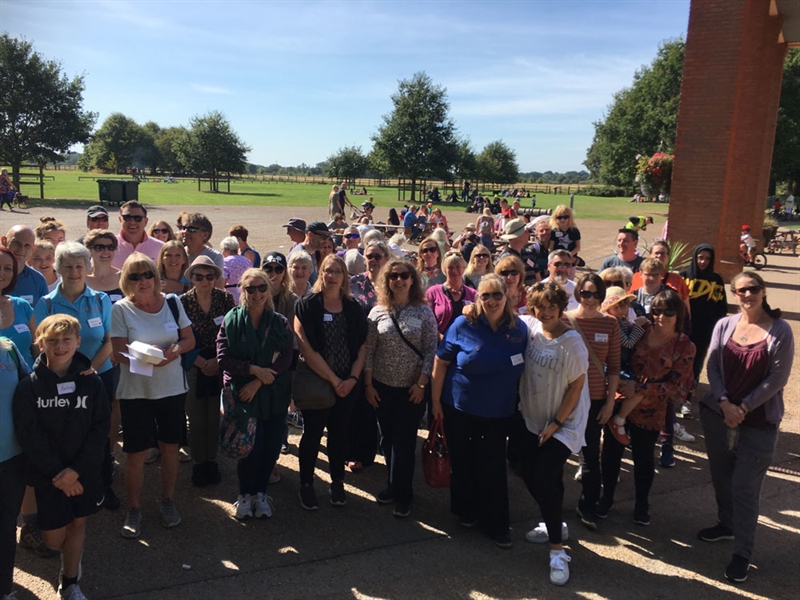More than 70 people walked to Beat SCAD on Saturday 14th September. The weather was fantastic and the route in Coombe Country Park, Coventry, took us through some lovely parts of the park and provided a beautiful environment for the SCAD community to come together and support each other. Walkers included SCAD patients, families and friends. Click here to see some of the highlights.
After the walk, Rebecca Breslin, Chair of Beat SCAD, talked to the group about Beat SCAD, our mission, achievements and plans for the future, including our current fundraising campaign ‘The Alice Project’. This important campaign is raising £64,000 to pay for research fellow Dr Alice Wood to stay on at Leicester for another year of research into SCAD, focusing on subgroups including male SCAD patients, pregnancy/post-partum cases and those who have experienced a recurrence of SCAD.
Our fundraising target for the walk is £16,000 and our page total currently stands at 46% with a fantastic contribution of over £3,000 coming from the fabulous Scottish Patient Group who hosted their walk in Edinburgh on 31 August.
Funds raised from registration fees (over £750), online donations, plus on-the-day donations and merchandise sales (over £500), which included sales of our brand new ‘hot off the press’ lapel badge, all go into the fund for ‘The Alice Project’.
There is still time to donate to ‘The Alice Project’ if you are able. Huge thanks to all who have contributed already. The research is essential, and we must do everything we can to keep it and allow it to move forward to find the answers to our many questions.
Dr David Adlam, who leads the UK SCAD research, then updated us on progress and took questions from the audience.
He said some more papers about different aspects of the research are due to be published in the coming months, including an MRI scan study that will shed light on the heart damage caused by SCAD. So far it seems that the vast majority of SCAD patients have very little long-term damage to their hearts.
He added that the recurrence risk is approximately 10% over a 3-3.5-year follow-up and the outlook for those who have a recurrence is generally good.
Dr Adlam is working with French, US and Australian research teams on genetic aspects of SCAD and biomarker studies are being carried out in collaboration with a Spanish research team which (in the distant future) could pave the way for earlier diagnosis of those at risk of SCAD via a blood test.
Research is also being done on entire vascular systems to investigate links with FMD and other vascular conditions. Dr Adlam explained that for the vast majority of SCAD patients who also have FMD, this diagnosis is clinically unimportant and rarely requires a change to their medication or lifestyle. A tiny number will have worrying signs associated with FMD (eg aneurysms) that will need monitoring. It appears that FMD is less commonly found in male SCAD patients.
For those who have signed up to take part in the research, Dr Adlam told us the research team will be sending out follow-up questionnaires for patients to update them on their progress, so if you receive one, please do complete and send it back as soon as you can. Questionnaire responses are a key part of the research and contribute to the statistics patients are asking for, such as recurrence rate and how common post-SCAD chest pain is.
Many thanks to everyone who came to the walk, to David and Martina Fletcher for their help in organising the walk and venue, to Sally Bee for starting the walk off, Dr David Adlam for updating us on the research and Theo Leeds for filming the event.

